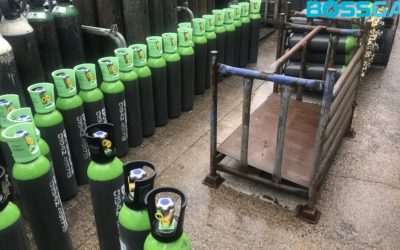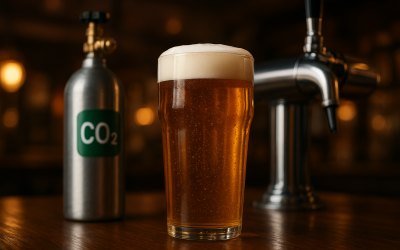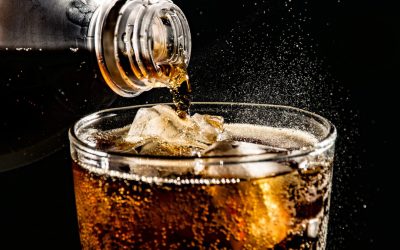Beverage gases in Bolton make a critical difference in the flavour, aroma, and overall enjoyment of beers and soft drinks. If you are serving alcohol in a busy pub or just downing pints at home, bad gas will ruin a good drinking experience in a heartbeat. The gas behind the pour is also critical, whereas most people are concerned with the type of beer or syrup being used. Whether it causes a change in levels of carbonation or introduces unpleasant tastes, poor-quality or contaminated gas can have a direct impact on what your customers or guests are tasting. Here, we will explore the impact of gas quality in beverages and why high-purity workplace gas is crucial in maintaining everything crisper, fresher, and consistent in each glass.
What Is Beverage Gas?
Beverage gas, commonly composed of carbon dioxide (CO2) and nitrogen, is a mixture that dispenses beverages under pressure. Because every drink is different, so is the exact mixture of CO2: lagers will normally need 100 per cent CO2, whereas stouts might need a combination with nitrogen to get that creamy head. CO2 is used in soft drinks to carbonate. The gas not only forces the liquid down the lines but also comes into contact with the drink itself.
How Poor Gas Quality Alters Taste
When gas is contaminated or not pure enough, it can impact flavour in several ways:
- Flat or Over-Carbonated Drinks: Incorrect gas blends or pressure settings result in either too much or too little fizz, disrupting the balance.
- Spoiled Aroma: CO₂ affects not just the bubbles, but also how aromas are carried to the nose. Poor gas can distort the smell of your beverage.
- Oxidation Risk: If the gas contains oxygen, it can cause beer to spoil more quickly by accelerating oxidation.
The Importance of Using Food-Grade Gas
It is only food-grade CO2 and nitrogen that are filtered and purified to be used as a safe agent in drinks. Industrial gases can contain oil deposits, be toxic, and have excessive moisture. Applying non-food-grade gas may save you a purchase, but it will ultimately result in a loss of stock and upset clients.
Impact on Soft Drinks
Soft drinks rely entirely on carbonation for their taste and texture. Poor gas affects:
- Mouthfeel: Less fizz means a dull, syrupy texture.
- Sweetness Perception: Proper carbonation balances sweetness. Without it, the drink tastes overly sugary.
- Shelf Life: Contaminants can alter pH levels and reduce product stability.
Keep Your Beverages at Their Best
The quality of the beverage gases in the Bolton supply you use is important, and therefore, you should maintain a high standard. Poor gas not only influences flavour, but it also impacts reputation, waste levels, and customer satisfaction.
Select Boss Gas as the provider of clean, food-grade beverage gas that guarantees perfect pours without any impurities. Don’t let good drinks go to waste due to bad gas. Call us now to receive your required delivery and expert tips.









